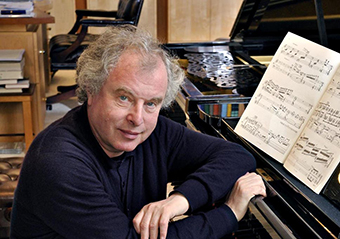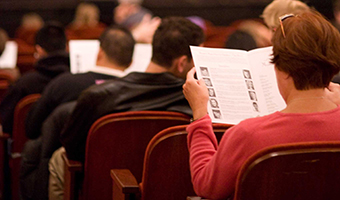A Response to Frances Wilson — Why Sir András Schiff is Not All Wrong about Modern Audience
Previously, our contributor Frances has written an articulate article in response to András Schiff’s comment about modern audiences, which I attach here again just in case you haven’t read it before:
“… the quality and general culture of audiences has diminished in equal measure… The average listener of today has hardly the faintest idea about what he is hearing. He neither knows anything about new music, nor can he differentiate between outstanding, moderately good and poor performances.” – Sir András Schiff (Source: The Telegraph (UK), 8 March 2020)

András Schiff © Rex / The Independent
Contrary to Frances, I can sympathise with Schiff to a certain extent, though his remarks may sound exaggerated or misanthropic. As a matter of fact, nowhere can I find any propagation of elitism through Schiff’s words. What he suggested is merely the fact that the cultural literacy of modern audience is declining, which is arguably true. Same as Frances, I also believe that specialist knowledge is not a must for enjoying classical music and that classical music is not only for the so-called intellectuals. The emotional response provoked by music is inborn rather than learnt.
Yet, it’s equally undeniable that learning some music history and theory would help better appreciate the music. For instance, knowing a bit of counterpoint can help one make the most of a performance of Bach’s The Art of Fugue (Die Kunst der Fuge), while knowledge of Schubert’s life would be useful in comprehending his late piano sonatas on a deeper level.
Schubert: Piano Sonata No. 20 in A Major, D. 959 – II. Andantino (Mitsuko Uchida, piano)
The article proposes a potentially dangerous idea similar to “the customer is always right” — as an audience is a necessary part in music making, what the audience thinks shall be correct — but it clearly isn’t always the case. It then follows that ‘the audience can “sense” the quality of a performance’ through the intangible communication between the performer and audience. Such communication certainly exists, and it is what makes each concert experience unique, but to say that the audience can therefore “sense” the standard of playing is rather ambiguous and questionable in my humble opinion.
Here, please allow me to share my personal experience. A few years ago, I attended a piano recital by Khatia Buniatishvili, in which she played Precipitato from Prokofiev’s Piano Sonata No.7 as an encore (which sounded very similar to the video below).
I still vividly remember the exclamations of “Bravo” and rapturous applause after the performance. Based on the above conjecture, her playing must have been excellent, but was it?

© San Francisco Opera
One thing that I disagree with Schiff is the way he put across his thoughts. Everyone is entitled to their opinion and of course we, including musicians, have to respect listeners’ opinions. Instead of commenting on laymen of classical music with a condescending attitude, or on the extreme opposite, denying the decline in the general public’s acquaintance with classical music, we should acknowledge it and allow those interested to be exposed to classical music in a non-judgmental manner. No one is born a connoisseur. We need continuous exposure with immense curiosity to acquire knowledge and develop discernment. This would eventually enhance our experience of consuming classical music, which is, after all, the main point.






“No one is born a connoisseur. We need continuous exposure with immense curiosity to acquire knowledge and develop discernment.” Absolutely right, and very well put. I would go further: this statement is true for all the arts. There is no shortcut to connoisseurship, any more than there is a shortcut to being an artist, musician, dancer, actor, filmmaker, etc.